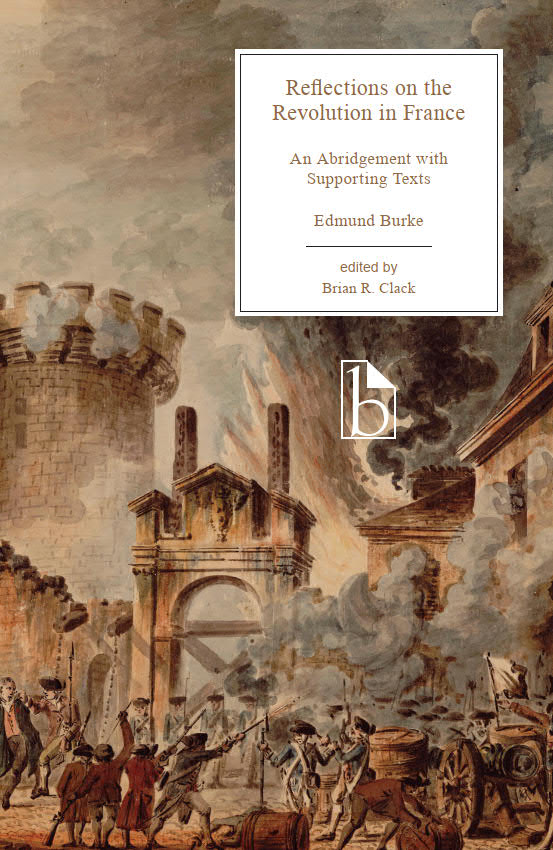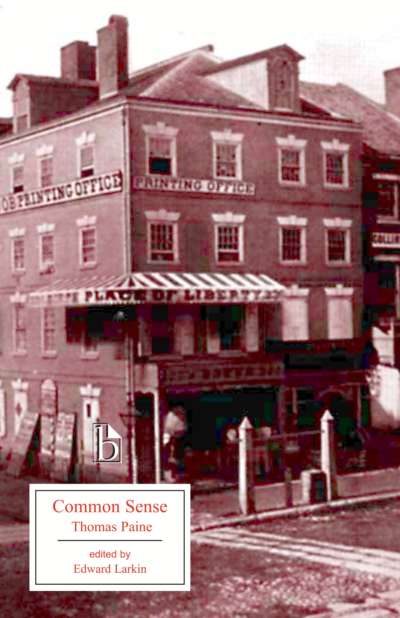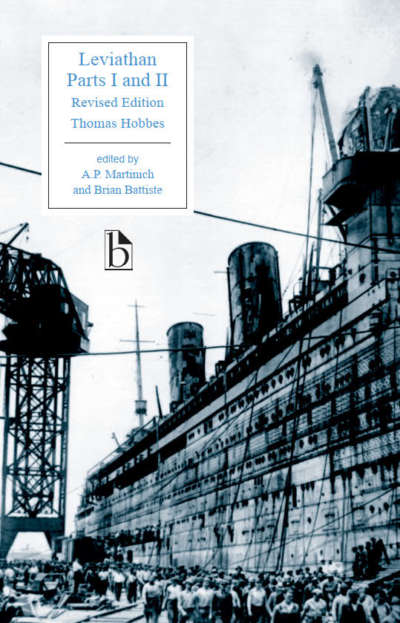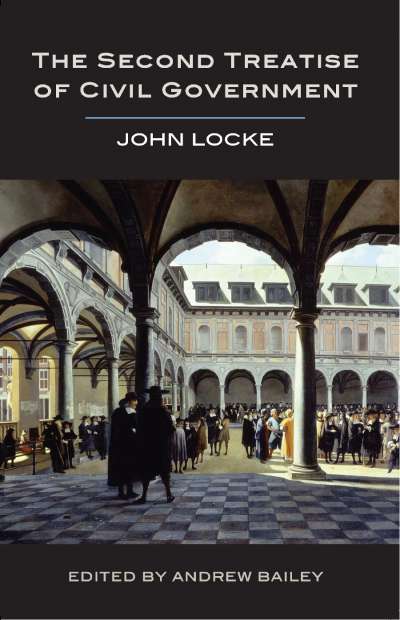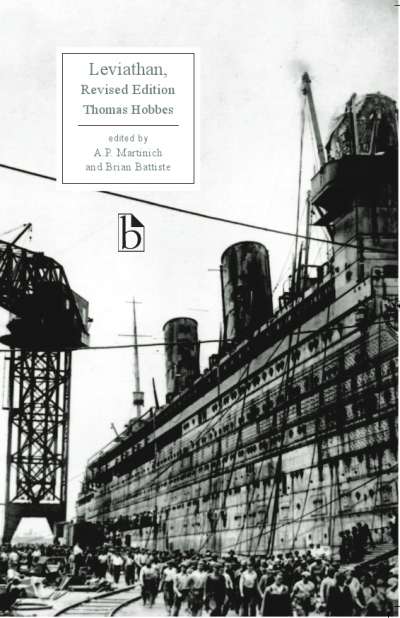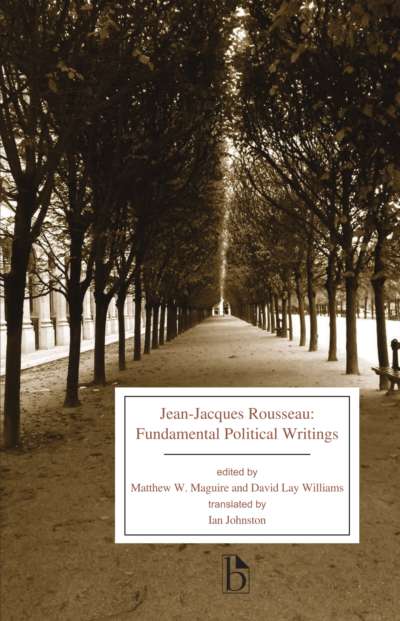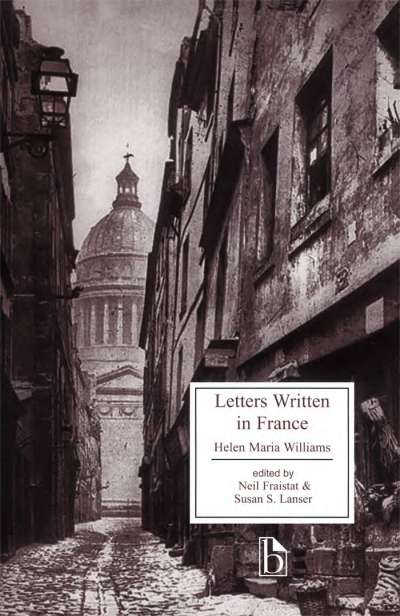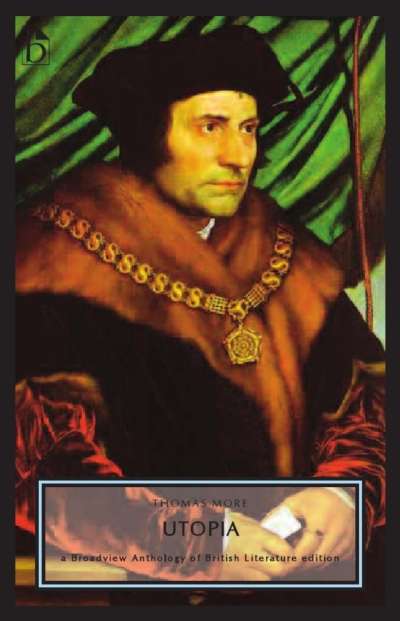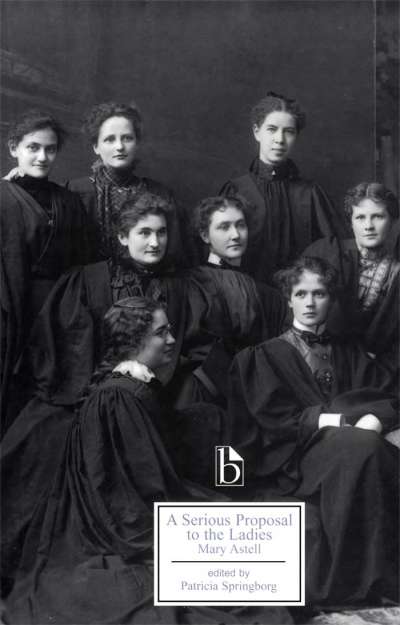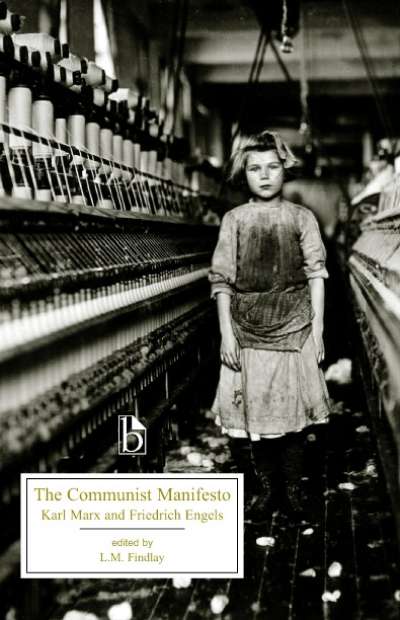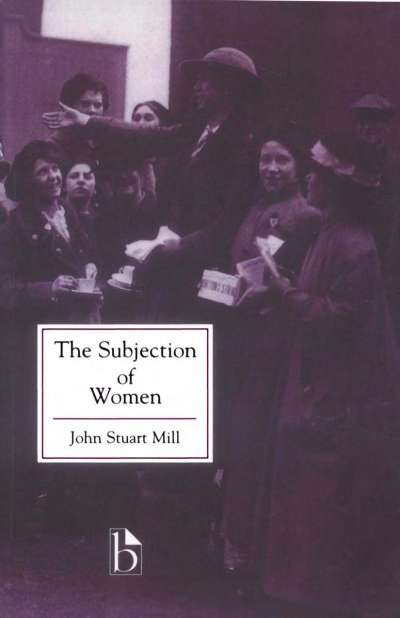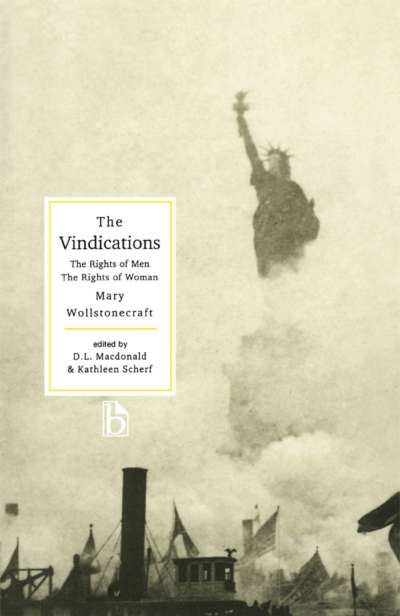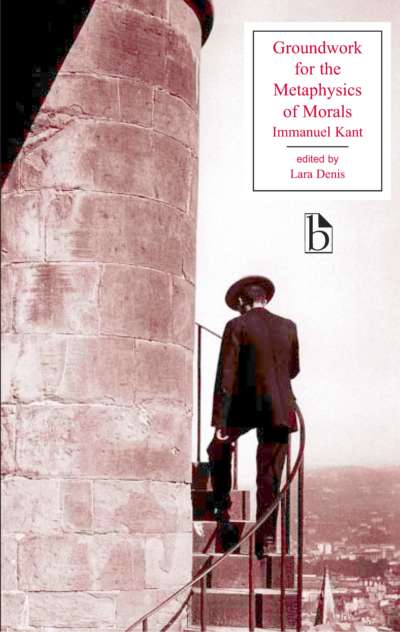This abridgement of Reflections on the Revolution in France preserves the dynamism of Edmund Burke’s polemic while excising a number of detail-laden passages that may be of less interest to modern readers. Brian R. Clack’s introduction offers a compelling overview of the text and explores the consistency and coherence of Burke’s views on revolution. Burke’s critique of revolutionary politics is illuminated further by the extensive supplementary materials collected in a number of themed appendices.
For an illuminating discussion of Brian R. Clack’s process in abridging this edition, click here.
Comments
“In this expertly curated edition of Burke’s Reflections, Brian Clack makes a convincing, well-researched, and beautifully written case against the view that Burke’s political views changed drastically with the penning of the Reflections—that he was once the defender of liberty and reform and suddenly became a reactionary defender of the monarchical status quo. Clack’s introduction is masterful—gracefully written, balanced, and well researched. Nearly every anticipation I felt as I read was met, as Clack has both an understanding of the scholarship on Burke and a writing style that takes the reader down a winding path, unveiling insights that the reader hopes are just around the next turn.” — Seth Vannatta, Morgan State University
"Clack’s abridgement of Burke’s Reflections is a joy to read. All of the essential aspects of Burke’s analysis are still there, and presented in a way that renders that analysis both clearer and more easily accessible for students coming to Burke for the first time. But the real value of this edition is in the remarkable appendices, which situate Burke’s thought in historical and intellectual context. These appendices allow the reader to see not only how the Reflections fit in with Burke’s wider body of thought but also how contemporaries such as Thomas Paine, James Mackintosh, and Mary Wollstonecraft responded to it. What a fantastic resource!" — Matt Zwolinski, University of San Diego
“Burke believed that structures, edifices, and supports were necessary for the perpetuation and prosperity of civil society. In his careful and judicious selection of Burke’s writings and speeches—and those of his adversaries—Clack provides the intellectual structures, edifices, and supports necessary to comprehend the foundations of Reflections on the Revolution in France in its philosophical and practical dimensions. An invaluable and accessible guide for anyone interested in Burke, the intellectual fissures of the Revolution, and the political ideologies they wrought.” — Gregory M. Collins, Yale University, author of Commerce and Manners in Edmund Burke's Political Economy
Acknowledgements
Introduction
Edmund Burke: A Brief Chronology
A Note on the Text
Reflections on the Revolution in France (Abridged)
Appendix A: Background Materials
- 1. From Sir George Savile, Marquis of Halifax, The Character of a Trimmer (1688)
- 2. The Bill of Rights (1689)
- 3. From Edmund Burke, A Philosophical Enquiry into the Origin of Our Ideas of the Sublime and Beautiful (1757)
- 4. Declaration of the Rights of Man and of Citizens (26 August 1789)
- 5. From Richard Price, A Discourse on the Love of Our Country (4 November 1789)
- 6. Congratulatory Address from the Revolution Society to the National Assembly of France (4 November 1789)
Appendix B: Burke and the American Revolution
Appendix C: Burke’s First Responses to the French Revolution
- 1. From a Letter to the Earl of Charlemont (9 August 1789)
- 2. From a Letter to Charles-Jean-François Depont (November 1789)
- 3. From “Substance of the Speech on the Army Estimates” (9 February 1790)
Appendix D: Burke’s Later Thoughts on the Revolution
- 1. From Thoughts on French Affairs (December 1791)
- 2. From Remarks on the Policy of the Allies with Respect to France (October 1793)
- 3. From Letters on a Regicide Peace (1795–97)
- a. From Letter I: “On the Overtures of Peace” (1796)
- b. From Letter II: “On the Genius and Character of the French Revolution as It Regards Other Nations” (1796)
Appendix E: Burke on Reform and Innovation
- 1. From “Speech on St. George’s Fields Massacre” (8 March 1769)
- 2. From Thoughts on the Cause of the Present Discontents (1770)
- 3. From “Speech on the Bill for Explaining the Powers of Juries in Prosecutions for Libels” (7 March 1771)
- 4. From “Speech on Presenting to the House of Commons (on the 11th February, 1780) a Plan for the Better Security of the Independence of Parliament, and the Economical Reformation of the Civil and Other Establishments” (1780)
- 5. From “Speech on a Motion Made in the House of Commons, the 7th of May, 1782, for a Committee to Inquire into the State of the Representation of the Commons in Parliament” (1782/84)
- 6. From An Appeal from the New to the Old Whigs (1791)
- 7. From A Letter to Sir Hercules Langrishe on the Subject of the Roman Catholics of Ireland (1792)
- 8. From A Letter to a Noble Lord (1796)
Appendix F: Burke on Rousseau and “The Philosophy of Vanity”
- 1. From A Letter to a Member of the National Assembly in Answer to Some Objections to His Book on French Affairs (1791)
Appendix G: Contemporary Responses to Burke’s Censure of the French Revolution
- 1. The Mercer-Burke Correspondence (February 1790)
- a. Thomas Mercer to Edmund Burke (19 February 1790)
- b. Edmund Burke to Thomas Mercer (26 February 1790)
- 2. Philip Francis, from a Letter to Edmund Burke (3 November 1790)
- 3. From Frances Burney (Madame D’Arblay), The Diary and Letters of Madame D’Arblay (1778–1840)
- 4. From Richard Price, Preface to A Discourse on the Love of Our Country, 4th ed. (1790)
- 5. From Mary Wollstonecraft, A Vindication of the Rights of Men, in a Letter to the Right Honourable Edmund Burke Occasioned by His Reflections on the Revolution in France (1790)
- 6. From Catherine Macaulay, Observations on the Reflections of the Right Hon. Edmund Burke on the Revolution in France (1790)
- 7. From Joseph Priestley, Letters to the Right Honourable Edmund Burke Occasioned by His Reflections on the Revolution in France (1791)
- 8. From Thomas Paine, Rights of Man: Being an Answer to Mr. Burke’s Attack on the French Revolution (1791)
- 9. Jane Burke, from a Letter to William Burke (21 March 1791)
- 10. Thomas Jefferson, from a Letter to Benjamin Vaughan (11 May 1791)
- 11. From James Mackintosh, Vindiciae Gallicae: Defence of the French Revolution and Its English Admirers, against the Accusations of the Right Hon. Edmund Burke (1791)
- 12. The Mackintosh–Burke Correspondence (December 1796)
- a. James Mackintosh to Edmund Burke (22 December 1796)
- b. Edmund Burke to James Mackintosh (23 December 1796)
Appendix H: “Delivered Over to Infamy at the End of a Long Life”
- 1. Selections from Burke’s two speeches on the Quebec Bill (May 1791)
Works Cited and Select Bibliography
Brian R. Clack is Professor of Philosophy and A. Vassiliadis Director of the Humanities Center at the University of San Diego. He is the author or co-author of several books including The Philosophy of Religion: A Critical Introduction (Polity), and co-editor of Philosophy and the Human Condition (Oxford University Press).

